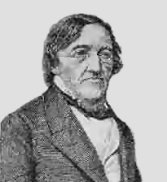|
2. 人類卵細胞的發現 |
 |
|
卡爾·
厄爾 von
巴爾
Karl Ernst von Baer
(1792-1876)
|
|
|
卡爾·厄爾von
巴爾出生和卒於愛沙尼亞,但是在德國和俄國從事科學生涯,是一位享譽國際的科學家。他作為德國加里甯格勒大學的動物學和解剖學教授,研究哺乳動物的胚胎發育。在工作中,他於1826年發現了哺乳動物和人類的卵細胞,一年後他發表了他的發現。但是,他的同僚們沒有完全領會到他的發現的重要性,由此使他的更多雄心研究規劃沒能實現。後來,他接受了位於彼得堡的科學研究院動物學家和解剖學家的職務,在那裏,他還奠定了俄國的人類學和生態學學科基礎。 |
|
Conception
- Historical
Notes |
|
2.
Discovery of the Human Egg Cell
|
|
Karl Ernst von Baer was born and died in Estonia but made his career as a scientist in Germany and Russia. As a professor of zoology and anatomy at the German university of Königsberg (today Kaliningrad), he studied the embryonic development of mammals. In the course of this work, he discovered the mammalian and human egg cell in 1826 and then published his discovery one year later. However, his scientific colleagues did not fully comprehend the importance of his research, and thus some of his more ambitious projects remained unrealized. He later accepted a position as a zoologist and
anatomist at the Academy of Sciences in St. Petersburg, where he also laid the groundwork for the new fields of anthropological and ecological studies in Russia. He died in the country of his birth as an internationally renowned scientist. |